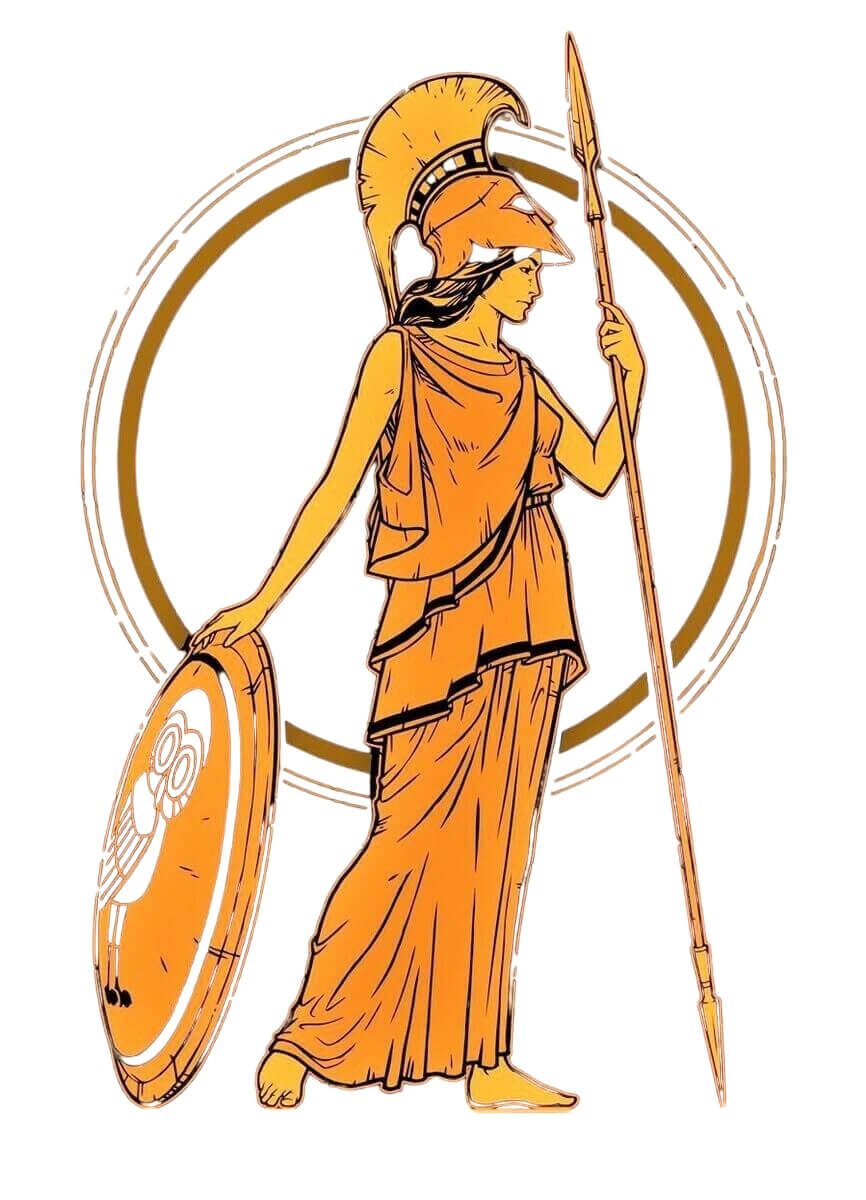Greek Gods and Goddesses
Among the most important Greek gods are the twelve Olympians and Hades, the brother of Zeus and king of the underworld. The Greeks called their gods as the Olympians, because according to the Greek Mythology they dwelled on the top of the Mount Olympus.
Zeus
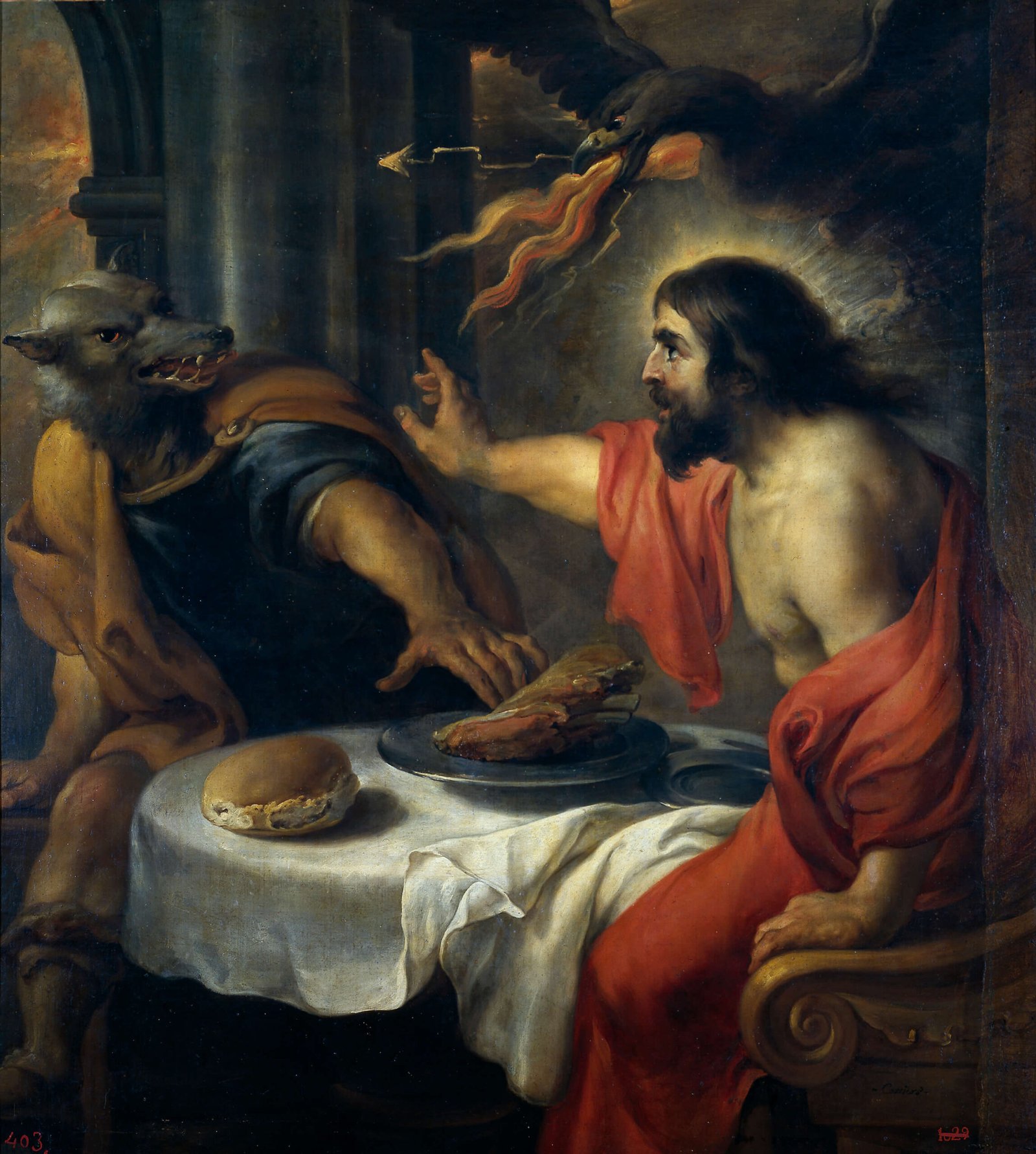
Zeus is the supreme god of Olympus, sky and thunder in Greek Mythology. He is depicted as a womanizer and severe, imposing deity, that punishes humans or for their benevolent wish of progress, or excessive expression of evil, being fond of human ordinariness, obedience and absolute compliance. As the father of many Greek gods and great heroes, the supreme god of Olympus is never helpful in their lives. On the contrary, he is usually the origin of their long-lasting misadventures and perilous feats.
Hera
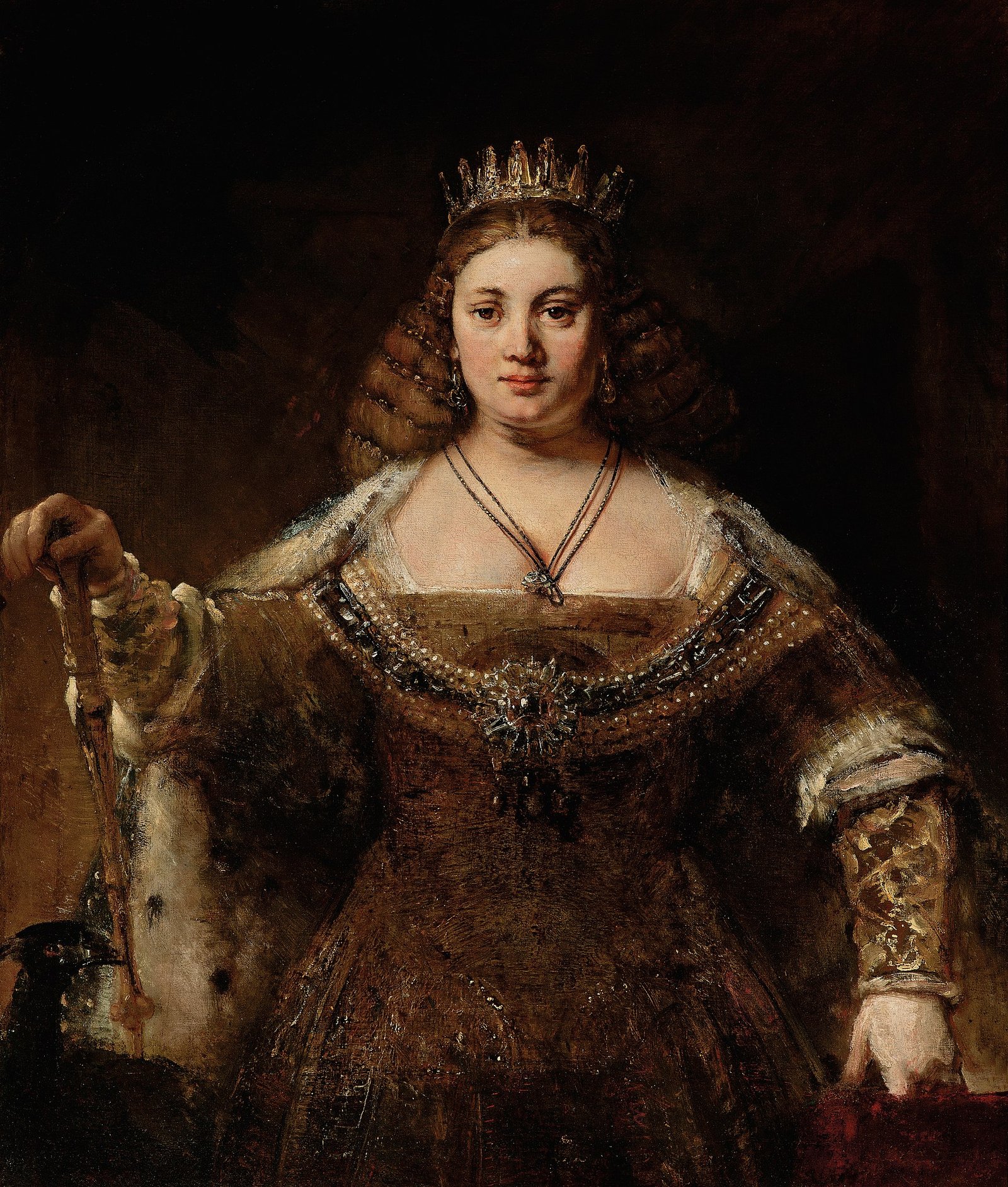
In Greek Mythology, Hera is the goddess of lawful marriage and vengeful wife of Zeus. She blesses the weddings and governs the marital unions. The jurisdictional and bureaucratic part of human society seems to be pretty well personified by her depiction as a resentful and vindictive deity. In fact, she would never hear the voice of reason and would be fighting the heroes forever in time and beyond, with the sole purpose of glorifying her grueling draconian rules and institutions.
Aphrodite
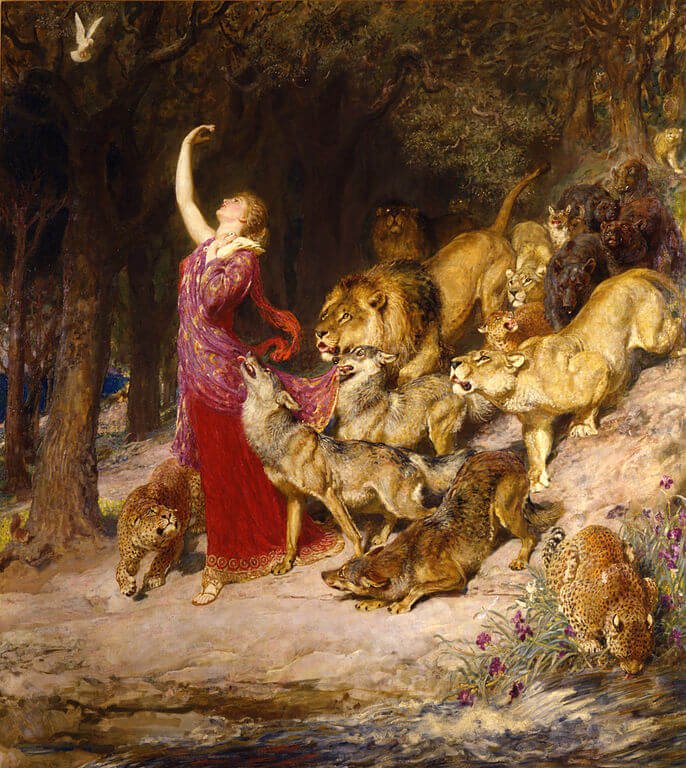
In Greek Mythology, Aphrodite was the goddess of love, beauty, carnal desires and erotic passions. As the patroness of sexuality and lust, she used to torment mortals and gods, without distinction. In ancient Greece she was also venerated, as the benefactress of marriage and procreation.
Hades
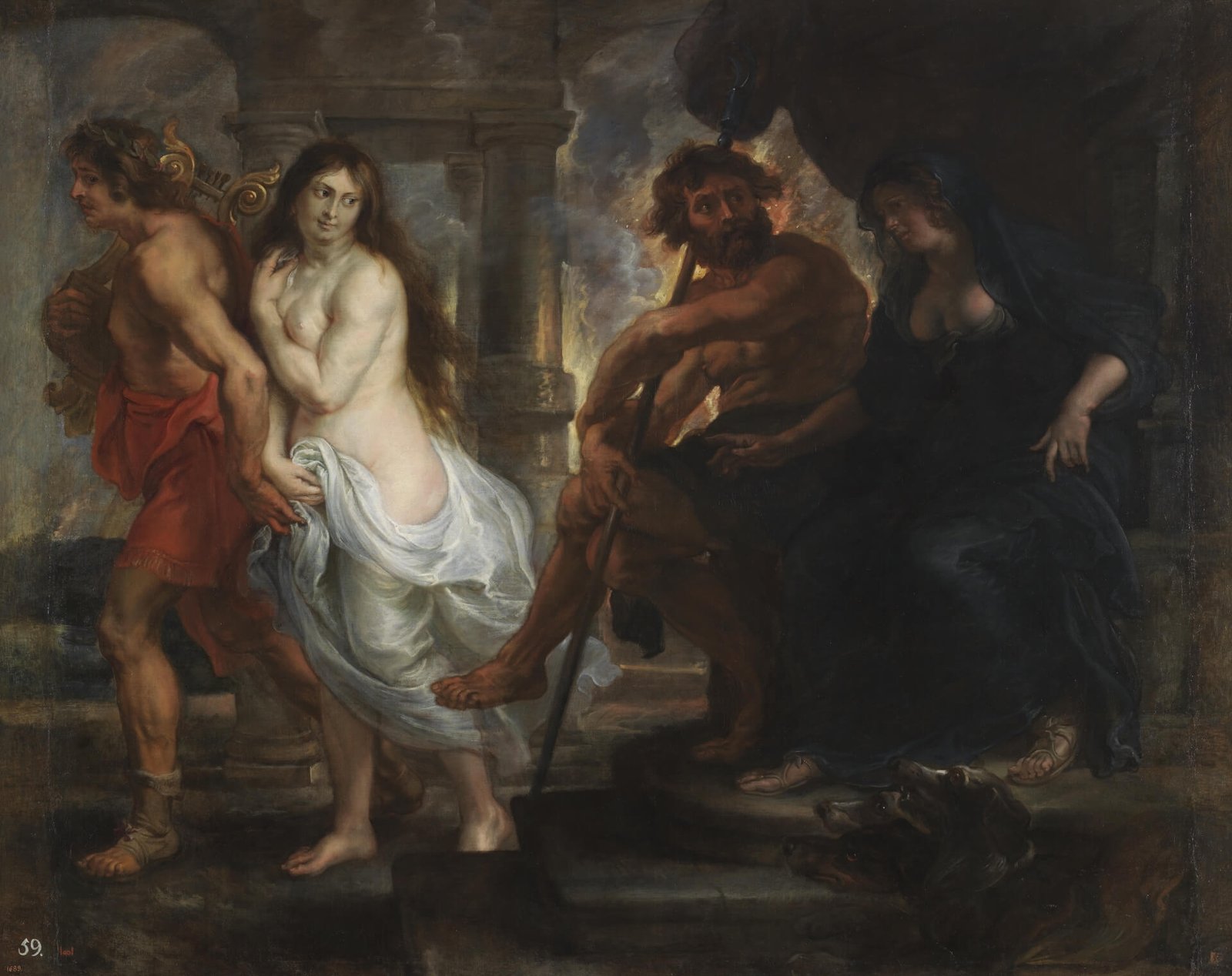
In ancient Greek mythology Hades is the god of the dead and ruler of the Underworld. He is the brother of Zeus and Poseidon, also the husband of Persephone, whom he abducted from her mother Demeter, while she was collecting flowers. The kingdom of Hades is gloomy and full of shadows, of those simple people and heroes, who lived in Greece, but never managed to be worthy of the astonishing, bright Elysium.
Apollo
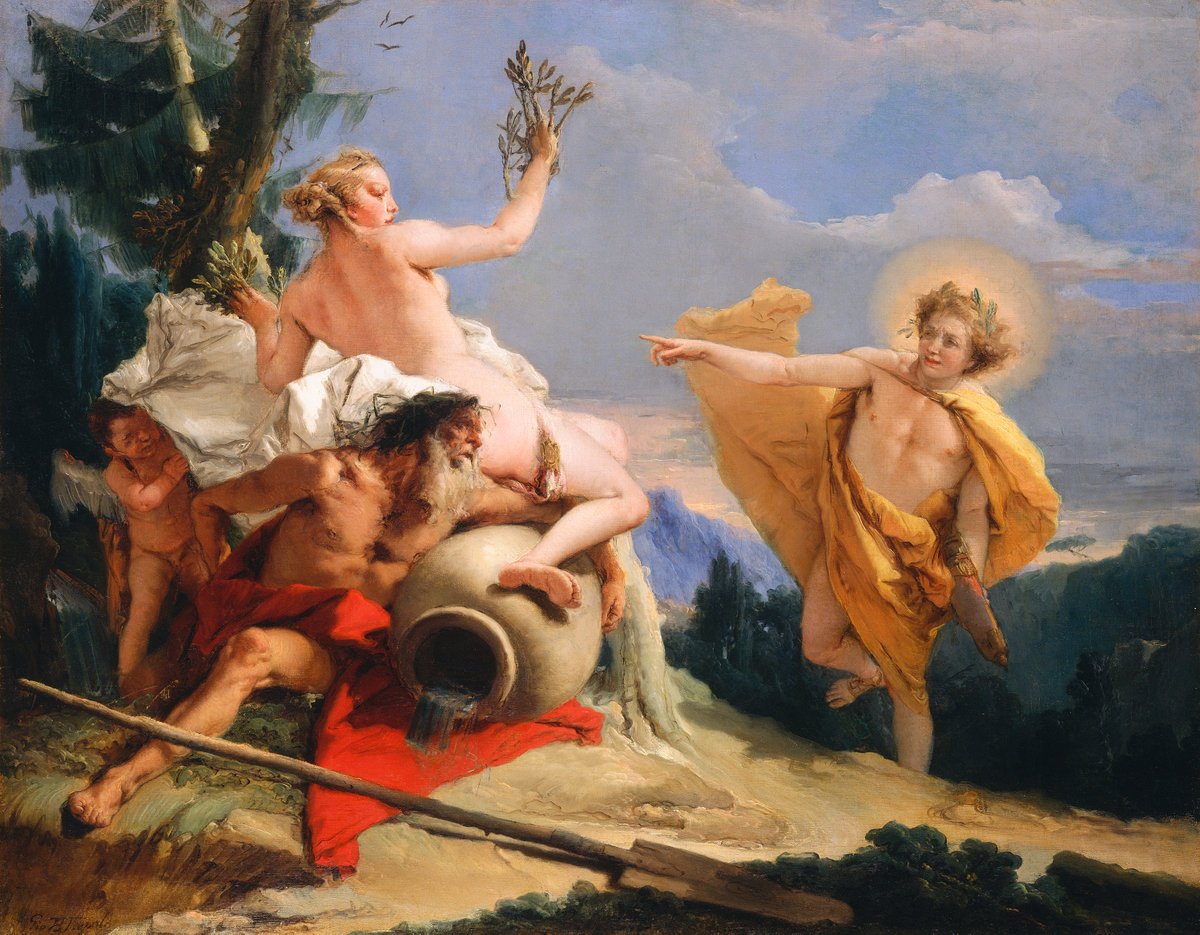
Apollo is the Greek god of music, prophecy, poetry and healing. He is the son of the Greek gods Zeus and Leto, and the twin brother of the goddess Artemis. Frequently depicted as an archer, he was a skillful master of bow and lyre. He had presided over the nine muses, dance, music and all kind of ancient poetry.
Dionysus
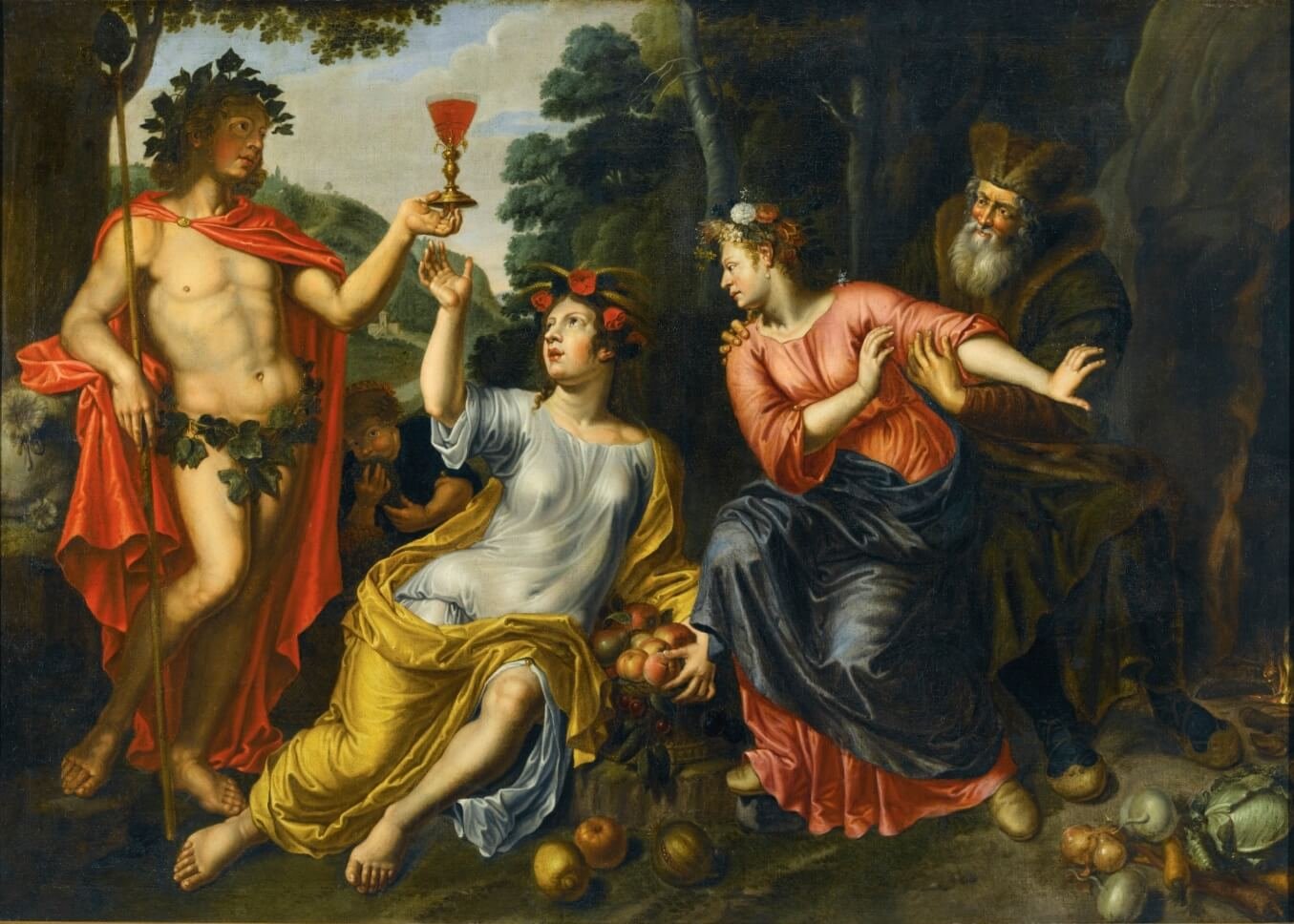
Among all other Greek gods Dionysus was distinguished because of being the Greek god of wine, festivity and euphoria. He also patronized fruitfulness, fertility and vegetation in Ancient Greece. He was usually depicted in company of maenads – intoxicated, demented youthful women, possessed by ecstasy; and satyrs – humanlike creatures with horns, goat legs, horse tails and covered with wool.
Poseidon
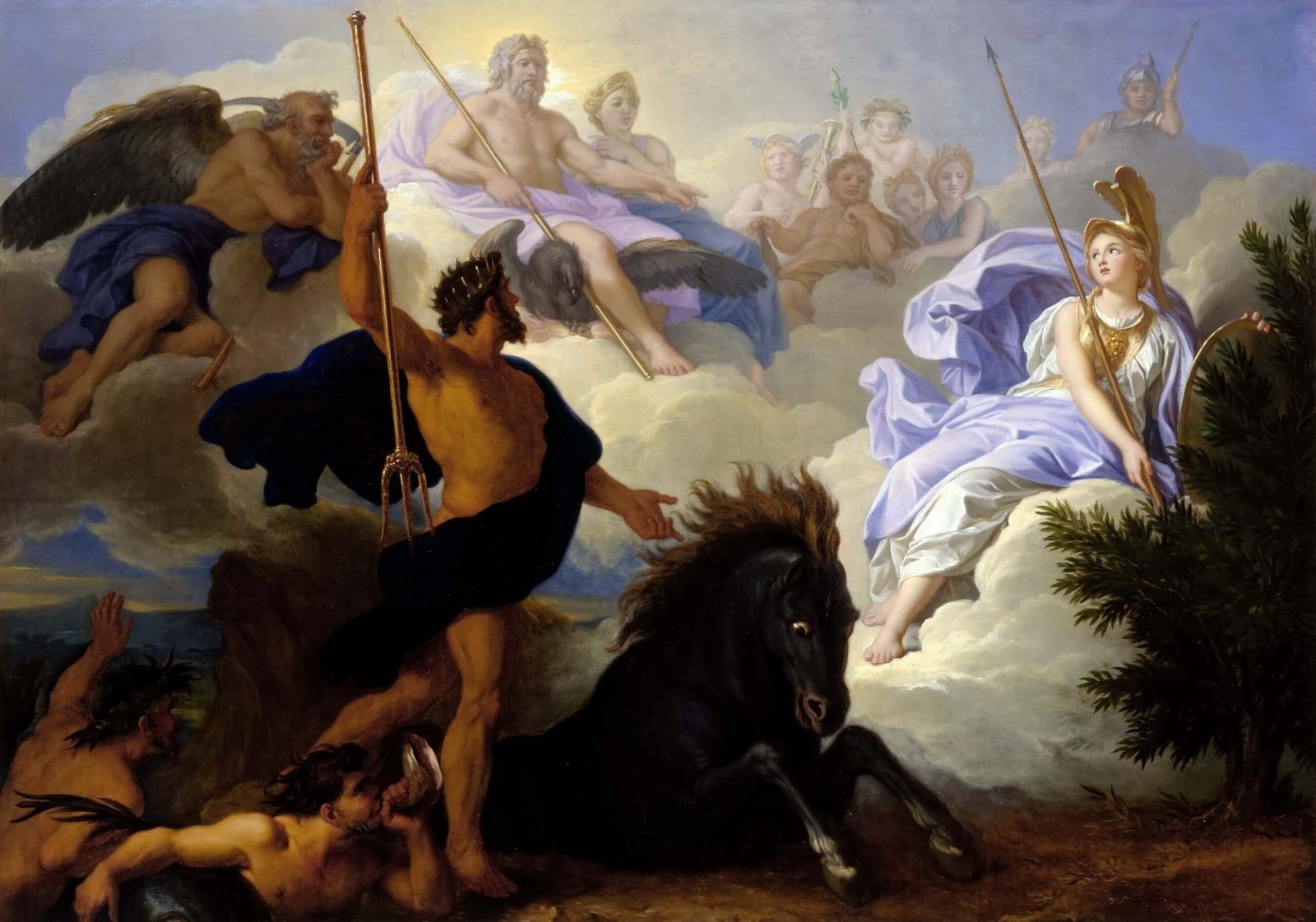
Poseidon is the god of the sea, earthquakes, storms and horses in Greek Mythology. He is the brother of Zeus and usually an ambitious companion, or adversary of Athena, when it comes to the patronage of cities and heroes; their birth, origins and destiny. Theseus was Poseidon’s half-son and Odysseus had suffered from his persecution. According to Ovid, the god of the sea abused Medusa in the temple of Athena and the goddess of wisdom had turned her into a gorgon.
Ares
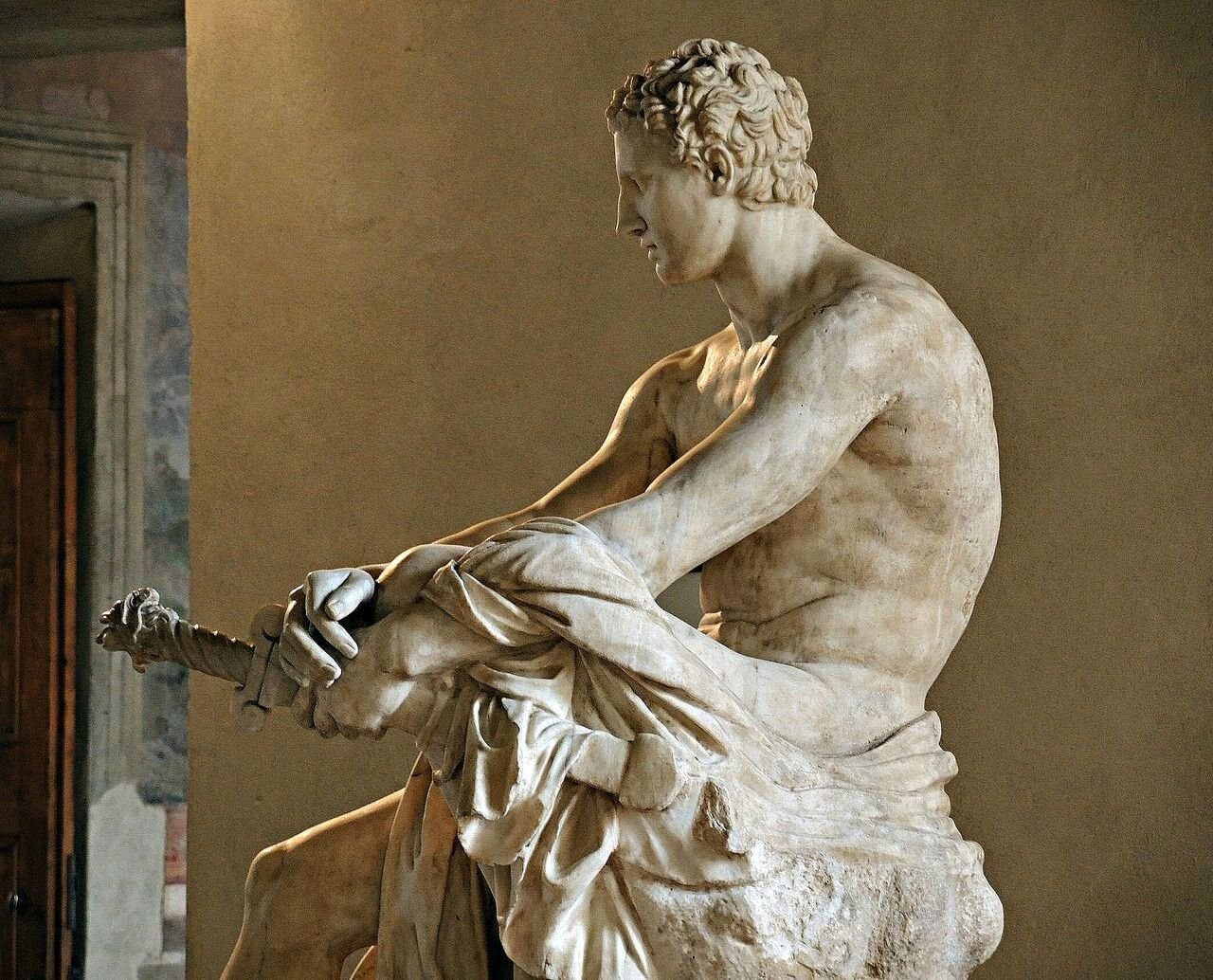
In Greek mythology, Ares was the god of war, courage and battlelust. He was one of the strongest Greek gods in Ancient Greece. However, he usually personified the most terrible aspects of the battle and wasn’t very popular among the Greeks. Only the Spartans extoled and appreciated his rage, bravery and strength, that suited perfectly to their military city-state. In ancient legends Ares represented the invincible way of the warrior and only Athena, the goddess of wisdom was able to defeat him.
Hephaestus
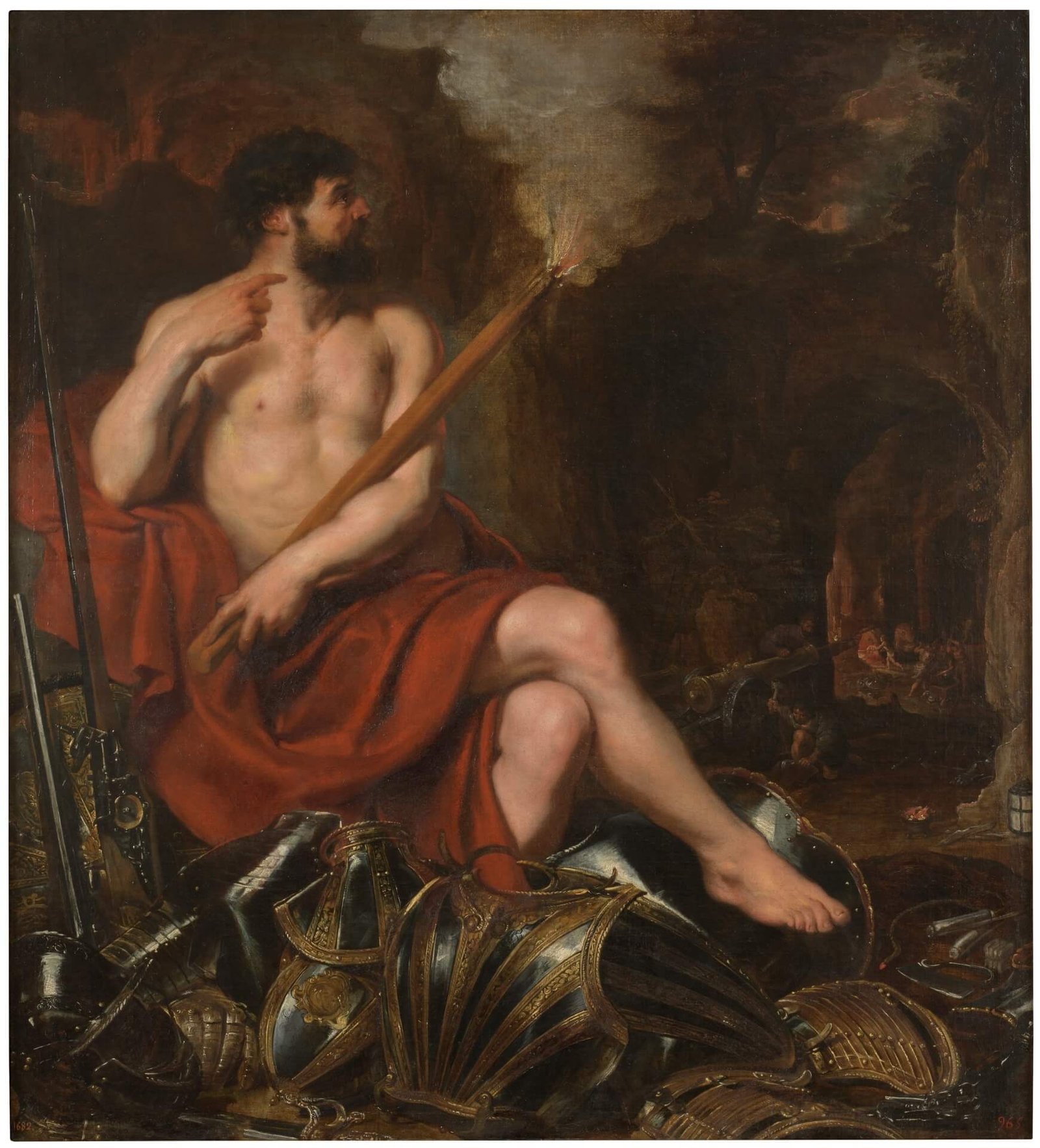
In Greek Mythology, Hephaestus is the god of artisans, smiths, carpenters, craftsmen, metalworking and sculpture. He is the ultimate personification of a thinker and inventor for the ancient Greeks. For that reason, he had a failed love affair with Athena, but always adored her as the goddess of wisdom (Science, Art, Philosophy) and had a nasty relationship with Hera, whom he managed to fasten to her golden throne, as a revenge for his suffered childhood.
Hermes
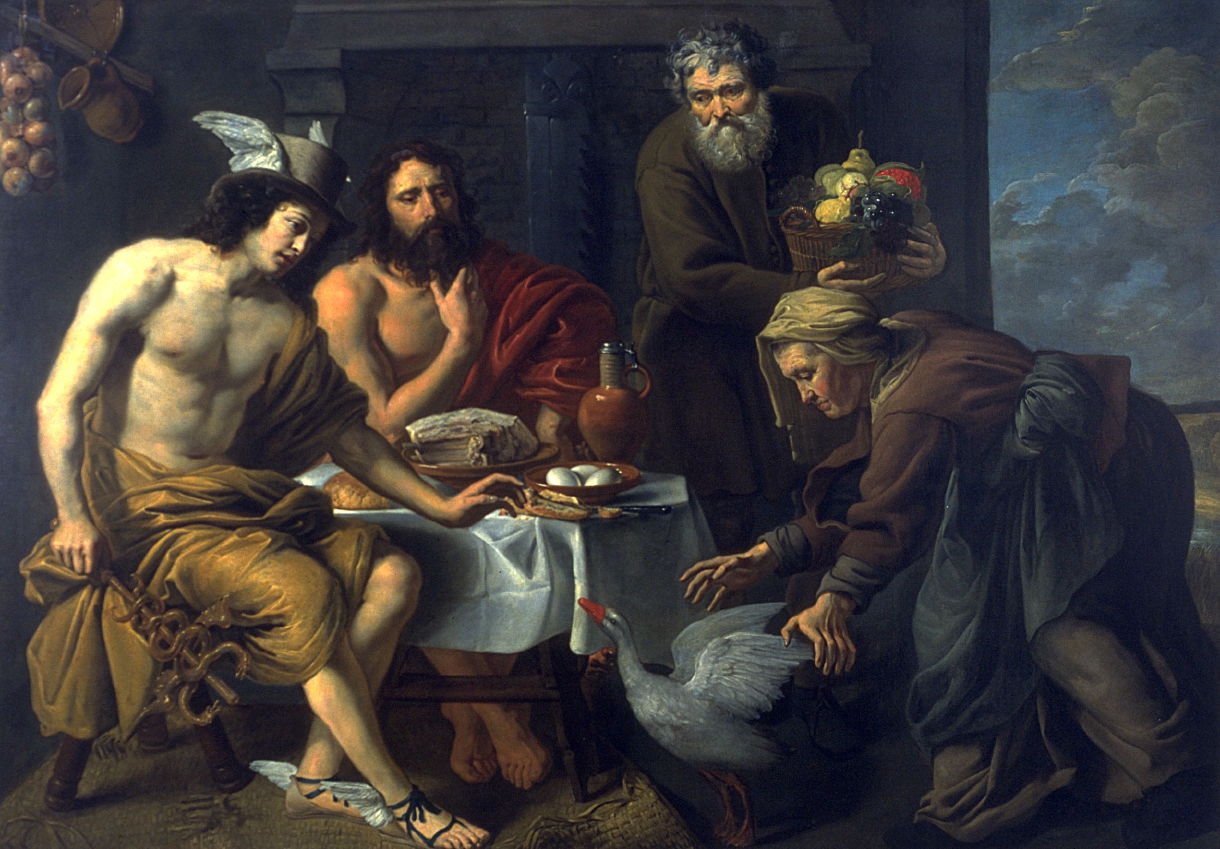
Among other Greek gods Hermes was famed because of his shrewdness and intelligence. He was the herald of Olympus and Greek god of trade, cattle raising, wealth, eloquence and diplomacy. He was also the patron of merchants, roads and cunning. His closest friend and ally was usually the goddess of wisdom Athena, along with whom he patronized and helped the most distinctive heroes, such as Perseus, Odysseus, Heracles and Theseus.
Athena
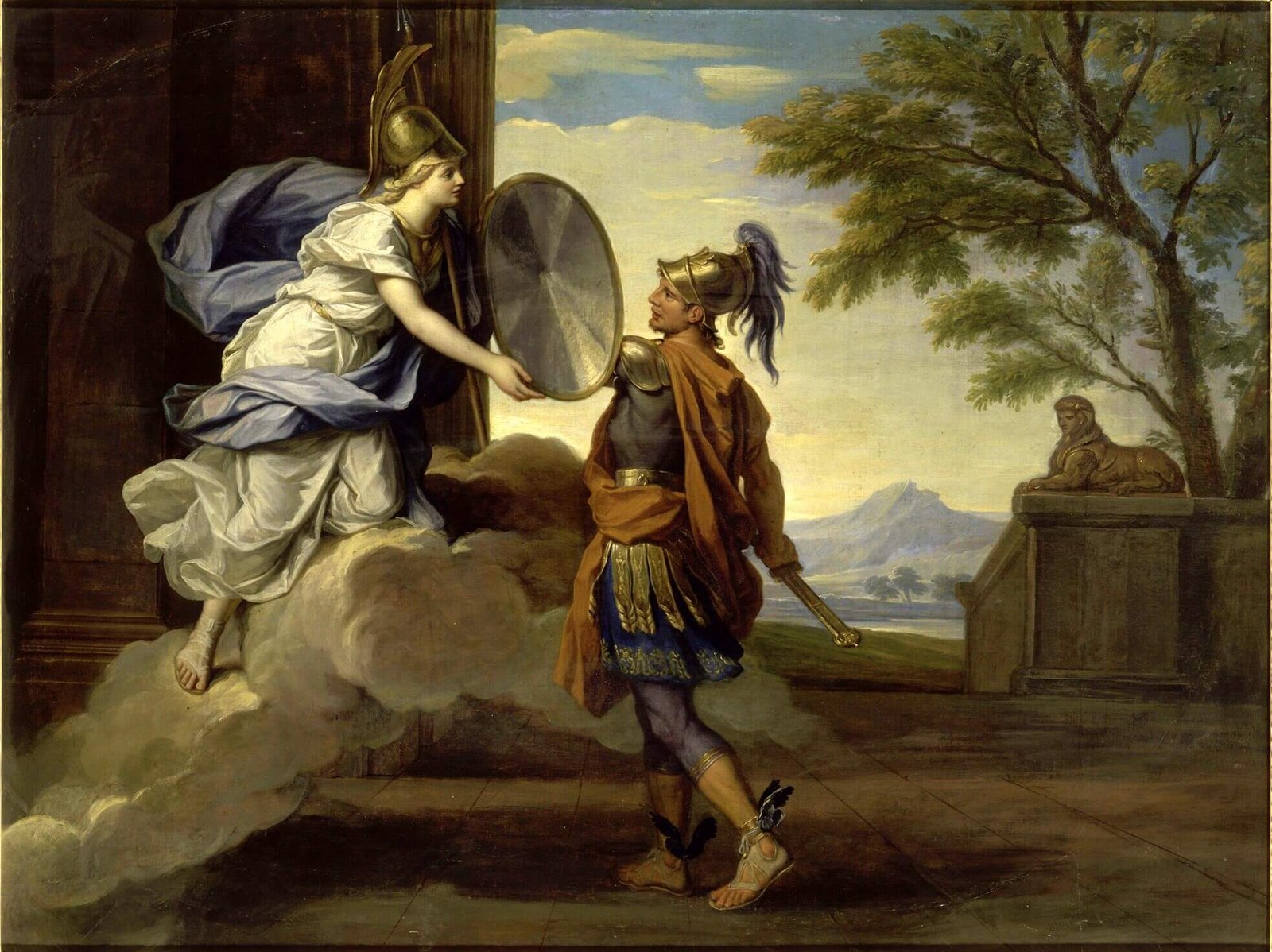
Athena is the Greek goddess of wisdom, handicraft and warfare. She is the personification of science, philosophy and art in Ancient Greece. Insofar as wisdom includes all the areas of knowledge, Athena was frequently depicted as the most benevolent and honorable of all the gods and goddesses. In fact, she embodied the political axiom for the progress of humanity in Ancient Greece. Furthermore, Athena also seems to be the King of Chaturanga, and the representation of the sublime Good in the ancient political system of the Ideal State, which stayed undiscovered for the philosophers and archaeologists of the Modern Age.
Artemis
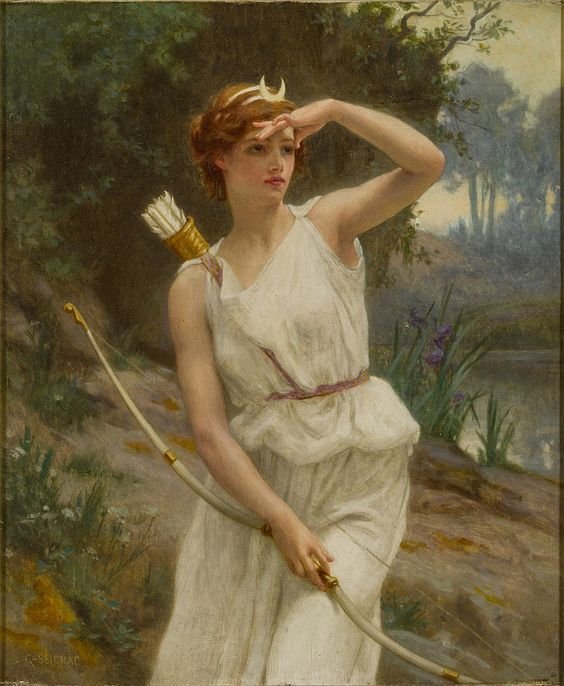
In Greek Mythology Artemis is the goddess of nature, hunt and wild animals. She is the Babel Tower (Rook) of Natural World in Chaturanga, inasmuch as the world itself could come to an end, if the environment is seriously damaged. According to ancient myths, Artemis is the sister of Apollo and daughter of Leto and Zeus.
Demeter
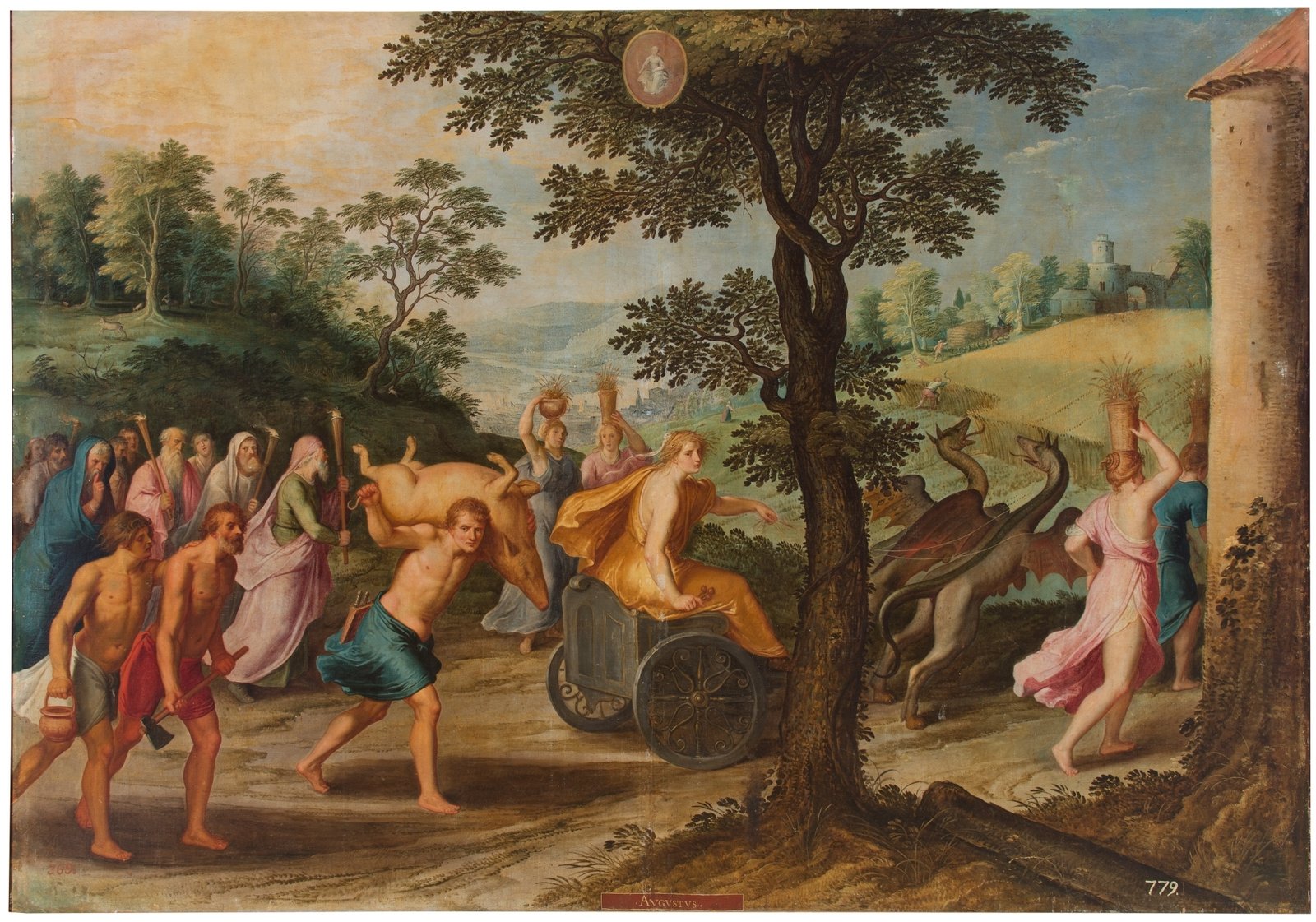
In Ancient Greek Mythology, Demeter was the goddess of harvest and agriculture, presiding over grains, crops and fertility of the earth. Hades the god of the underworld abducted her beautiful daughter, Persephone and forced her to be his consort. Since that moment on, every year Persephone returns to the surface to rejoin her mother goddess. Thereafter, Demeter’s jubilance marks the splendid beginning of spring; or according to other interpretation, the autumnal time of joyous harvest, when the stored grain of the old crops meets the grain of the new harvesting. Therefore it symbolizes the cycle of life and death and also the regeneration of life.
